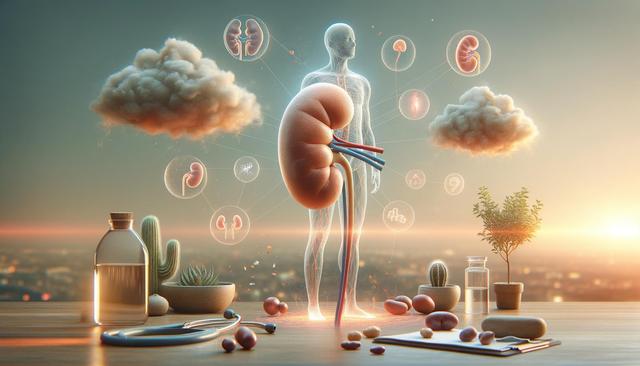Recognizing the Early Signs of Kidney Disease
Early detection of kidney disease is vital to slowing its progression and managing symptoms effectively. While kidney damage often advances silently, there are subtle signs that may indicate declining kidney function. These early symptoms can be easy to overlook, especially because they may resemble other common health issues. However, paying close attention to your body can help you identify potential problems before they become severe.
Some early warning signs of kidney disease include:
- Persistent fatigue or low energy levels
- Swelling in the ankles, feet, or hands due to fluid retention
- Changes in urination, such as frequency, color, or foaming
- Difficulty concentrating or confusion
- Shortness of breath, particularly during physical activity
These symptoms may not always point directly to kidney disease, but they do warrant further medical evaluation. If you experience any of these signs consistently, it’s important to consult your healthcare provider for testing and assessment. Understanding the early indicators can be especially critical for those with risk factors like diabetes or high blood pressure, as these conditions often contribute to kidney damage over time.
Link Between Chronic Conditions and Kidney Health
Chronic illnesses such as diabetes and hypertension are leading causes of kidney disease. Over time, high blood sugar levels and elevated blood pressure can damage the tiny blood vessels in the kidneys, reducing their ability to filter waste effectively. This connection emphasizes the importance of managing these conditions carefully to protect kidney function.
A balanced diet for diabetes, high blood pressure, and kidney disease plays a significant role in maintaining health. Key dietary strategies include:
- Limiting sodium intake to help control blood pressure
- Monitoring carbohydrate consumption to manage blood sugar
- Reducing protein intake to lessen the kidney workload
- Staying hydrated with appropriate fluids
In addition to diet, regular physical activity and avoiding tobacco use can support overall kidney health. Maintaining routine checkups to monitor kidney function is especially important for individuals with chronic conditions, as early intervention can help delay or even prevent the progression to more advanced stages of CKD.
Stage 4 Kidney Disease: A Critical Turning Point
Stage 4 CKD indicates that kidney function has declined to a severe level, with an estimated glomerular filtration rate (eGFR) between 15 and 29 mL/min. At this stage, many individuals begin to experience more pronounced symptoms, such as nausea, loss of appetite, and difficulty sleeping. It becomes crucial to explore treatment options and lifestyle changes that can slow further deterioration.
With careful management, some individuals may delay the need for dialysis. Alternatives to dialysis during Stage 4 can include:
- Strict adherence to a kidney-friendly diet
- Medication adjustments to control blood pressure and other contributing conditions
- Regular monitoring and consultations with a nephrologist
- Exploring the possibility of preemptive kidney transplantation
These approaches aim to preserve remaining kidney function and improve quality of life. Patient education and support are essential during this stage, as making informed decisions can help individuals manage their condition with greater confidence.
Hydration and Kidney Health: Choosing the Right Beverages
Staying properly hydrated is essential for kidney health, but not all drinks offer the same benefits. Knowing what to drink to keep kidneys healthy can support kidney function and overall wellness. Water remains the most effective and recommended beverage for maintaining hydration and aiding the kidneys in flushing out toxins.
Other beneficial drinks include:
- Herbal teas with anti-inflammatory properties (e.g., dandelion or nettle tea)
- Cranberry juice in moderation, which may support urinary tract health
- Low-potassium fruit juices, depending on dietary restrictions
It’s also helpful to understand what is the best thing to drink for your kidneys based on your specific health needs. For example, those with CKD may need to limit fluid intake or avoid high-potassium drinks. Consulting a healthcare provider or renal dietitian can ensure your hydration choices align with your treatment goals and dietary requirements.
Monitoring and Prevention: Staying Ahead of Kidney Disease
Preventing or managing kidney disease involves a proactive approach centered around awareness, regular screenings, and lifestyle adjustments. For those at risk or already diagnosed with early-stage CKD, monitoring kidney function through blood and urine tests is crucial. These tests can help track eGFR levels and detect protein in the urine, both of which are indicators of kidney performance.
Key prevention strategies include:
- Maintaining a healthy weight
- Following a diet for diabetes, high blood pressure, and kidney disease
- Managing blood sugar and blood pressure effectively
- Avoiding overuse of nonsteroidal anti-inflammatory drugs (NSAIDs)
- Staying hydrated with kidney-friendly beverages
Education plays a vital role in prevention. Understanding the risk factors and early symptoms allows individuals to seek timely medical advice and make lifestyle changes that can delay disease progression. For those in advanced stages, such as Stage 4 CKD, early planning and exploring alternatives to dialysis empower patients to make informed, personalized choices about their care.
Conclusion: Taking Control of Kidney Health
For individuals facing the challenges of kidney disease—especially those in Stage 4—the journey can be complex but manageable with the right knowledge and support. Recognizing early signs, staying informed about the link between chronic conditions and kidney function, and choosing healthy habits can make a significant impact. Whether it’s understanding what to drink to keep kidneys healthy or following a tailored diet for diabetes, high blood pressure, and kidney disease, small but consistent actions can help maintain kidney function for as long as possible. With a proactive mindset and a collaborative relationship with healthcare providers, patients can navigate their options—including alternatives to dialysis—and make choices that align with their long-term health goals.




Leave a Reply